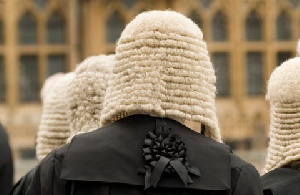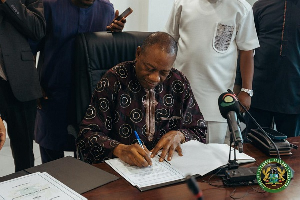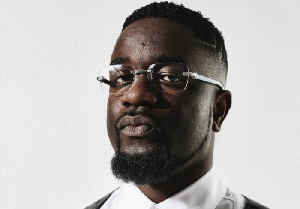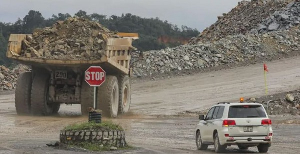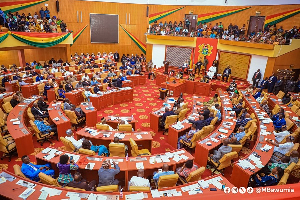With today’s global economy based on knowledge and education so vital to a nation’s success, it is disturbing to read recent figures showing that over half of Ghana’s high school students are failing examinations.
Political parties agree that something desperately needs to be done about our nation’s ailing education system. President Mills has begun a programme of reform but the NPP have responded with a personal attack, claiming that he is the problem.
Is there any truth behind their claim? More to the point, is their campaign helping Ghana get the education system it so badly needs?
One has only to look at the Arab Spring to see that the days have gone when political leaders could enjoy the unquestioning support of their people. Now, they are elected and judged on their ability to deliver results, and rightly so. The poor state of our education system is perhaps the most pressing and depressing of our country’s problems. To solve it will require an immense political will.
A quality education system is the goal of both the NDC and the NPP. Both parties agree that it will only be brought about by leadership that is strong and committed, tenacious and optimistic. Unfortunately, there the agreement ends.
To the dismay of many young Ghanaians, whose futures are at stake, there has been no useful debate on the practicalities of education reform. Instead the NPP has used education to embark on a propaganda campaign aimed against President Mills, and has reverted to the old-style politics of insult and finger-pointing.
In so far as the NPP are making an argument, is it that the current ills of our education system can be entirely attributed to a lack of commitment and energy on the part of President Mills.
NPP supporters have been brandishing statistics to support their claim but their figures do not, in fact, stand up to close scrutiny.
One study claims recent statistical evidence of a recent downward trend in education standards. In fact the study only used data from the three years since 2009 and it is hard to make any conclusions about trends from such a short period.
If scientific accuracy had been a real concern, the researchers would have done better to draw their data from a ten-year period. Perhaps they did not wish to reveal what happened during the time their own party was in charge.
Let us remind ourselves of what happened.
In 2001 the NPP took power promising ‘positive change’ and Ghanaians on both sides of the political divide were pleased to hear that the education system would be reviewed. Professor Anamuah-Mensah and his Committee were then asked to provide a blueprint for an education system that would be ‘robust’ and would meet the challenges of the future.
What shock and dismay there was, especially among young Ghanaians, when the Committee’s report was binned without any of its forward-looking recommendations being implemented.
We can only assume that President Kuffour was not happy with the advice that his own experts had given him. Certainly he seemed to think he knew best. He made a lot of his own initiatives to rename secondary schools and was reported as saying that he considered it evidence enough to show the people that positive change was taking place. His subsequent decision to extend the SSS system to four years was made without recourse to a process of expert consultation.
And let us not forget his experiment, playing ‘Volley’ with the school system during his final year in office.
The truth is that the NPP record on education is nothing to be proud of. The BECE results for 2001-2008 reveal a dispirited education system resigned to the fact that certain communities and parts of our country simply could not produce graduates for senior high schools and colleges.
Looking back on this period now, one cannot avoid the feeling that an opportunity was squandered and cannot help but think that today’s debate on education would be on a different level if the findings of Professor Anamuah-Mensah’s report had been at least considered.
It is still hard to see that even now the NPP have anything constructive to offer the process of educational reform. They may hope to win votes as a party that would provide free education for all, but they know it remains, sadly, a financial impossibility. In reality all they have offered is their attack on President Mills.
Their accusation that the President has given education a low priority is simply untrue. He inherited an ailing patient but having worked in the education system for three decades he is highly qualified to diagnose its ills and is passionately committed to finding remedies. Revival was never going to happen overnight, especially in light of the dispirited air that he has identified as a prime problem.
Putting teachers on a single-spine salary scheme is already boosting morale. Plans to move children into proper classrooms will improve the quality of education and examination results, too. Just as important are reviews underway of what our schools are teaching. Changes in curricula will ensure a modern generation is fit to succeed in today’s technological world.
The President is committed to providing an education system that is an inspiration to Ghanaians; one that is open to all and will lead to innovation in all areas of society. The system will aim to produce quality graduates who are ambitious, hard working and optimistic and who can help Ghana to tackle the challenges of the future.
At this point, the cynic will say they have heard such lofty ambitions before and that all the current good intentions are bound, as always, to come to nothing.
In fact, there is a way forward: but only if those involved in politics, especially the NPP, are prepared to think outside the old box of political tricks and act boldly.
Ghana needs to detach educational reform from the divides of party politics. Our country’s educational system is simply too important to be used by the political parties as a stick to beat each other with. Its problems unite us as a nation rather than divide us and what is required is a cross-party solution along the lines that were suggested by Vice President John Mahama.
With reform once again possible and positive initiatives taking place, it is time for all political parties, to come behind the process to help the nation forward. Serious debate of practical issues, including a candid sharing of lessons learned, is what is required of NPP politicians right now.
Change is vital if Ghana is to become competitive as a nation in our new knowledge-hungry world. If both sides can rise to the challenge and work together, it will be Ghana herself who will be crowned the winner.
God bless Ghana.
Source: Ken Johnson, London, 21st November 2011 Email: dondo12s@gmail.com
Opinions of Tuesday, 22 November 2011
Columnist: Johnson, K. N.


